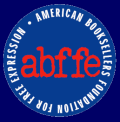Pushing Back in the Face of Censorship
At a lively and thought-provoking BookExpo America panel, two bestselling authors and two nationally noted free speech advocates presented an overview and a frontline account of the tactics and trends of contemporary book banning.
 The panel — “Book Banning 2011: A Report From the Front Lines of the Battle for Free Speech” — was held on Wednesday, May 25, and featured bestselling authors Laurie Halse Anderson (Speak, Twisted) and Robie Harris (It’s Perfectly Normal, It’s So Amazing!), Pat Scales, a defender of free speech in libraries for more than 30 years, and moderator Joan Bertin, executive director of the National Coalition Against Censorship (NCAC). The panel was sponsored by the American Booksellers Foundation for Free Expression, the Association of American Publishers, the Freedom to Read Foundation, and PEN American Center.
The panel — “Book Banning 2011: A Report From the Front Lines of the Battle for Free Speech” — was held on Wednesday, May 25, and featured bestselling authors Laurie Halse Anderson (Speak, Twisted) and Robie Harris (It’s Perfectly Normal, It’s So Amazing!), Pat Scales, a defender of free speech in libraries for more than 30 years, and moderator Joan Bertin, executive director of the National Coalition Against Censorship (NCAC). The panel was sponsored by the American Booksellers Foundation for Free Expression, the Association of American Publishers, the Freedom to Read Foundation, and PEN American Center.
NCAC’s Bertin began the session by noting that the American Library Association has reported that approximately 400 books a year are either challenged or banned, and, she said, “this is almost surely the tip of the iceberg.” The panelists stressed that many of the titles under attack were, as Bertin noted, “books that you would not expect to be challenged.” Challenged and banned titles run the gamut from such summer reading list staples Of Mice and Men to, in one case, a classroom dictionary because, Scales said, “it showed body parts.” Recognizing the chilling effect such challenges have in a community, Bertin noted that, even though “it doesn’t make the news,” the pressure from book challengers on teachers, librarians, and booksellers was very likely making many “steer away from” titles that might elicit comment.
Noting that she is the daughter of a United Methodist minister (“I’m ‘a preacher’s kid...’”), Laurie Halse Anderson encouraged free speech defenders to recognize that many of the censorship challenges come from the fear “of good-hearted people” and, she added, “I respect that fear.” Many parents, she noted, “are terrified because they know they have a responsibility to talk about hard things, but they feel inadequate.” The result, she said, was the wish to challenge titles that dealt with such topics. In addition, Bertin noted that “censorship can be left, right, and center... everybody’s got a button, and if you hit it you’ll hear from them.”
However, Anderson had far less empathy for would-be book banners who would exploit those fears, and she recounted one such encounter having to do with her National Book Award-finalist YA novel, Speak. In September 2010, Wesley Scroggins, an associate professor of management at Missouri State University, wrote a newsletter op-ed piece that characterized Speak as “soft pornography.”
Recognizing the need to respond to his attack, Anderson posted an account of the challenge on her blog, which updated readers and encouraged defenders of Speak to share their experiences of the book and to write to local school officials and the media. Anderson closed the post by noting: “Banned Books Week is only a few days away. Consider this your chance to get a head start on speaking up about a good book and defending the intellectual freedoms guaranteed us in our Constitution.”
Anderson told the panel attendees that following her post, “the story blew up — just blew up,” with strong support from the bloggers, national media coverage, and, on September 30, a full-page ad in the New York Times defending the novel purchased by the book’s publisher, Penguin Young Readers Group.
In the end, Scroggins “went down back into his hole,” said Anderson. Citing the power of the united front of defenders for Speak, she cautioned the panel’s attendees that “if we don’t respond in the appropriate way, we just give [book banners] our flag.” In addition, she encouraged booksellers year-round — not just during Banned Book Week — to highlight challenged and banned titles and to offer themselves as such resources for parent/child book groups, in order to highlight the importance of young readers’ access to age-appropriate, but perhaps controversial, writing.
Looking ahead, the panelists cited efforts by such organizations as Common Sense Media and Facts on Fiction to offer parents more information about titles, but what they are doing is essentially labeling and rating books. Scales and Harris both noted instances where inaccurate or incomplete information had led to, as Bertin noted, “fear mongering” regarding titles that could lead to further book challenges and bannings.
Following the panel, ABFFE Preisdent Chris Finan said, ““I thought the panelists did a terrific job of explaining why we must continue to oppose the hundreds of challenges to books in schools and libraries every year. If students, teachers, librarians and booksellers don’t push back in the face of censorship attempts, there will soon be nothing left on the shelves worth reading.”